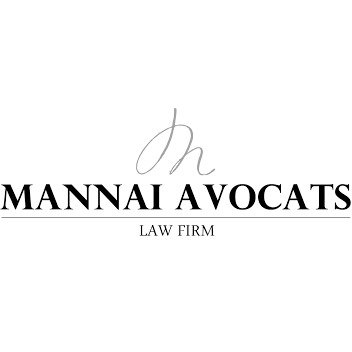Best Bankruptcy & Debt Lawyers in Tunis
Share your needs with us, get contacted by law firms.
Free. Takes 2 min.
List of the best lawyers in Tunis, Tunisia
About Bankruptcy & Debt Law in Tunis, Tunisia
Bankruptcy and debt law in Tunis, Tunisia encompasses regulations and procedures related to individuals and businesses facing financial distress. These legal frameworks aim to provide relief for debtors while protecting creditors' rights. Understanding these laws is crucial for anyone who finds themselves in a situation where bankruptcy or debt is a concern.
Why You May Need a Lawyer
Hiring a lawyer specialized in bankruptcy and debt law can be beneficial in various situations, including:
- If you are struggling with overwhelming debt and need guidance on managing your financial situation.
- If you are considering filing for bankruptcy and need advice on which type of bankruptcy is suitable for your circumstances.
- If you are facing foreclosure or repossession of your assets and need assistance in protecting your rights.
- If you are a creditor seeking to recover debts and need legal representation to navigate the legal process.
- If you need assistance in negotiating debt settlements or creating repayment plans.
Local Laws Overview
Bankruptcy and debt laws in Tunis, Tunisia primarily adhere to the Tunisian Code of Obligations and Contracts. Here are key aspects of the local laws:
- Bankruptcy Options: Tunisian law provides for two main types of bankruptcy: voluntary bankruptcy (requested by the debtor) and involuntary bankruptcy (requested by creditors or the public prosecutor).
- Debt Reorganization: Debtors in financial distress may have the opportunity to reorganize their debts through a plan approved by the court. This plan can include repayment terms, reduction of interest rates, or the sale of assets to settle debts.
- Public Auctions: In certain cases, the court may order the public auction of a debtor's assets to distribute the proceeds among creditors.
- Creditors' Rights and Protections: Tunisian law safeguards creditors' rights by allowing them to file claims, participate in bankruptcy proceedings, and receive a proportionate share of the debtor's assets.
Frequently Asked Questions
Q: Can I file for bankruptcy as an individual in Tunis, Tunisia?
A: Yes, individuals in Tunis, Tunisia can file for bankruptcy. Tunisian law offers different bankruptcy procedures depending on the situation, such as voluntary bankruptcy or involuntary bankruptcy requested by creditors or the public prosecutor. Consulting with a lawyer is crucial to understand the specific requirements and process.
Q: Will filing for bankruptcy eliminate all my debts?
A: Filing for bankruptcy does not automatically eliminate all debts. It depends on the type of bankruptcy filed and the court's decisions. In some cases, certain debts may be discharged or reduced, while others may need to be repaid through a court-approved plan. A lawyer can guide you on the potential impact of bankruptcy on your debts.
Q: What are the consequences of bankruptcy in Tunis, Tunisia?
A: Bankruptcy can have various consequences, including potential liquidation of assets, damage to creditworthiness, and certain restrictions on engaging in business activities. Understanding the specific consequences of filing for bankruptcy is essential, and a lawyer can provide guidance based on your unique situation.
Q: Can I negotiate with creditors to avoid bankruptcy?
A: Yes, negotiating with creditors to reach debt settlements or create repayment plans outside of bankruptcy is possible. However, this often requires legal expertise to ensure fair and mutually beneficial agreements. Consulting with a lawyer can help you navigate these negotiations and protect your interests.
Q: What alternatives to bankruptcy exist in Tunis, Tunisia?
A: Tunis, Tunisia provides alternatives to bankruptcy, such as debt restructuring or reorganization. These alternatives aim to alleviate the financial burden without resorting to complete liquidation or bankruptcy. Consulting with a lawyer will help you explore the available alternatives and determine the best course of action.
Additional Resources
- Tunisian Ministry of Justice: http://www.justice.gov.tn/
- Tunisian Bar Association: http://www.avocat.tn/
Next Steps
If you need legal assistance regarding bankruptcy and debt in Tunis, Tunisia, it is recommended to follow these steps:
- Identify reliable lawyers or law firms specialized in bankruptcy and debt law in Tunis.
- Research and gather information about potential lawyers who have experience in handling cases similar to yours.
- Schedule consultations with one or more lawyers to discuss your situation, understand the potential options, and evaluate their expertise.
- Select a lawyer with whom you feel comfortable and confident in their abilities to represent your interests effectively.
- Proceed with engaging the chosen lawyer, providing them with all necessary documentation and information to begin working on your case.
Lawzana helps you find the best lawyers and law firms in Tunis through a curated and pre-screened list of qualified legal professionals. Our platform offers rankings and detailed profiles of attorneys and law firms, allowing you to compare based on practice areas, including Bankruptcy & Debt, experience, and client feedback.
Each profile includes a description of the firm's areas of practice, client reviews, team members and partners, year of establishment, spoken languages, office locations, contact information, social media presence, and any published articles or resources. Most firms on our platform speak English and are experienced in both local and international legal matters.
Get a quote from top-rated law firms in Tunis, Tunisia — quickly, securely, and without unnecessary hassle.
Disclaimer:
The information provided on this page is for general informational purposes only and does not constitute legal advice. While we strive to ensure the accuracy and relevance of the content, legal information may change over time, and interpretations of the law can vary. You should always consult with a qualified legal professional for advice specific to your situation.
We disclaim all liability for actions taken or not taken based on the content of this page. If you believe any information is incorrect or outdated, please contact us, and we will review and update it where appropriate.
Browse bankruptcy & debt law firms by service in Tunis, Tunisia
Tunis, Tunisia Attorneys in related practice areas.









